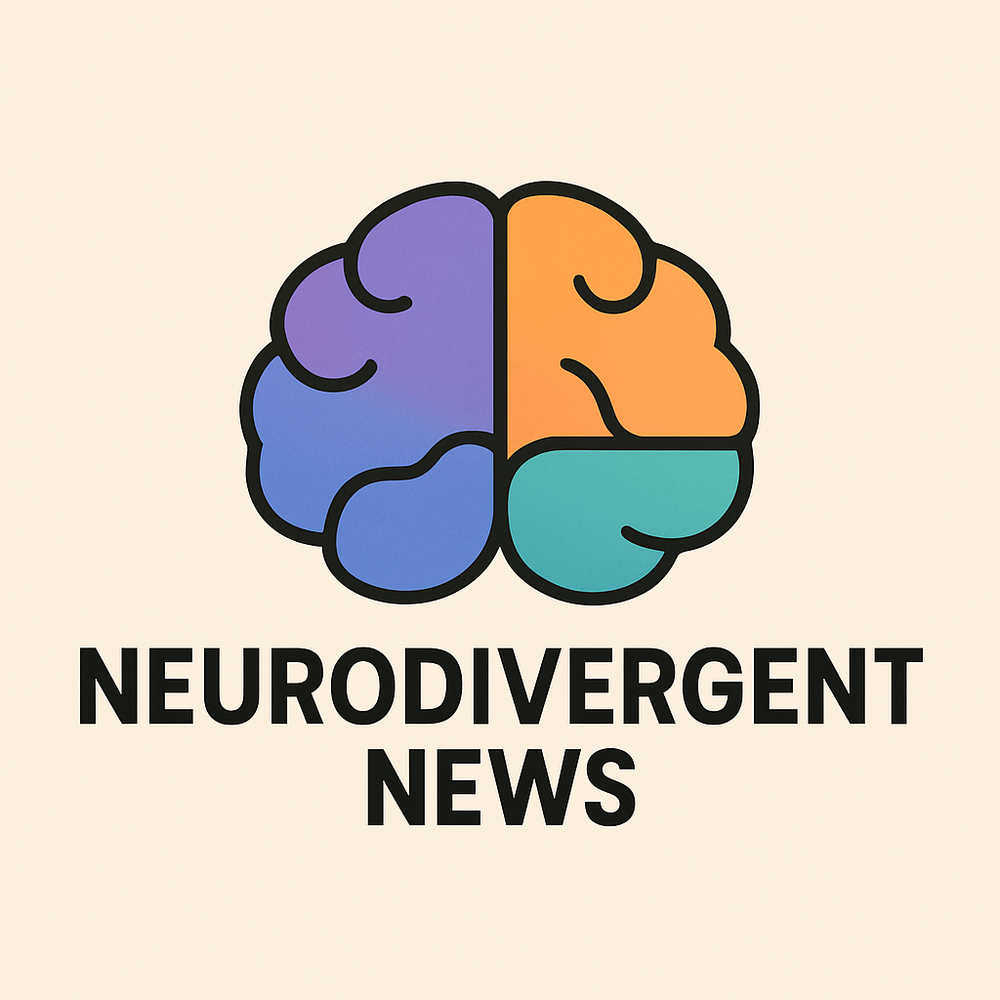Neurodivergent News Roundup: April 28 – May 4, 2025
The week of April 28 to May 4, 2025, brought significant developments in the neurodivergent community, encompassing societal shifts, workplace initiatives, personal narratives, and advocacy efforts. Here's a comprehensive overview of the key stories:
🧠 Majority in Britain Now Self-Identify as Neurodivergent
A recent study reveals that a majority of Britons now self-identify as neurodivergent, encompassing conditions such as autism, ADHD, dyslexia, or dyspraxia. This shift reflects increasing societal acceptance and reduced stigma. Professor Francesca Happé of King's College London attributes this trend to greater awareness, especially among younger generations. However, she cautions against over-diagnosis, noting that behaviors once seen as eccentricities are now often given medical labels. The prevalence of autism diagnoses has sharply risen, with rates increasing 787% in the UK from 1998 to 2018. The broadening definition of neurodivergence and increased self-diagnosis could mean neurodivergent individuals now outnumber neurotypical ones. Happé emphasizes that diagnosis can aid individuals in accessing educational support and communicating needs, but it remains a nuanced subject.
💼 Employers Recognize Value of Neurodivergent Workers
Companies are increasingly acknowledging the potential of neurodivergent individuals—those with conditions like autism, ADHD, and dyslexia—as a valuable yet underutilized talent pool. Organizations such as Bank of America, Dell, Microsoft, and SAP have implemented programs to recruit and support these workers, many of whom are highly skilled but face challenges in traditional work environments. For instance, Bank of America’s Support Services group employs over 250 neurodivergent workers to manage essential tasks. Enabled Intelligence, a startup engaged in data labeling for the U.S. military, reports 97% accuracy—well above the industry standard—by hiring neurodivergent employees. Workplace accommodations such as quieter office layouts or personalized booths are helping these employees thrive. Advocates argue that adjusting work environments and expectations could unlock immense potential within this overlooked group, boosting both workforce inclusion and productivity. SXSW EDU+3Business Insider+3
🎤 Comedian Robin Ince Shares Impact of Midlife ADHD Diagnosis
Comedian and broadcaster Robin Ince discusses how receiving an ADHD diagnosis at age 52 transformed his life and improved his 30-year marriage. Long plagued by anxiety, impulsivity, and hoarding tendencies, Ince had struggled with emotional regulation and felt misunderstood. Prompted by suggestions from colleagues and fans, he sought a private assessment, which confirmed his neurodivergence. Initially concerned his wife might see the diagnosis as self-indulgent, he was relieved by her supportive reaction. His memoir, Normally Weird and Weirdly Normal, explores his life through the lens of neurodiversity, tracing behaviors like overthinking, distraction, and emotional hypersensitivity. Ince reframes ADHD as a lens for better understanding oneself and others, challenging stigma around neurodivergence. Latest news & breaking headlines
🏥 NHS Implements Neurodiversity Training Workshops
The UK's National Health Service (NHS) has introduced neurodiversity training workshops aimed at improving care and support for neurodivergent individuals. Several NHS trusts and regional partnerships have adopted these workshops, leading to specific improvements:Enna Global
- Coventry and Warwickshire Partnership NHS Trust: Launched the Oliver McGowan Mandatory Training, resulting in improved patient feedback and higher staff confidence in supporting autistic patients.Enna Global
- Devon (Torbay and Surrounding Areas): Delivered training in partnership with community organizations, leading to better collaboration with patients’ families and reduced distress during hospital stays.Enna Global
- Berkshire Healthcare NHS FT: Developed a comprehensive Neurodiversity Strategy, combining training with policy changes and support networks, resulting in better engagement in therapy sessions for patients with ADHD and autism.Enna Global
These initiatives underscore the importance of tailored training and organizational commitment in enhancing healthcare experiences for neurodivergent individuals.
🤖 AI Explored as Tool to Support Autistic Individuals
A recent study titled "Reimagining Support: Exploring Autistic Individuals' Visions for AI in Coping with Negative Self-Talk" investigates how autistic individuals perceive AI's role in managing negative self-talk (NST). The research involved 200 autistic adults and found that participants view large language models (LLMs) as useful for identifying and reframing negative thoughts. However, concerns were raised about LLMs' understanding of neurodivergent thought patterns, particularly due to neurotypical biases. Practitioners also critiqued LLMs' responses as overly wordy and vague. The study contributes to the growing research on AI-assisted mental health support, with specific insights for supporting the autistic community.
These developments highlight the ongoing efforts and challenges within the neurodivergent community to achieve greater understanding, inclusion, and support across various sectors of society.

